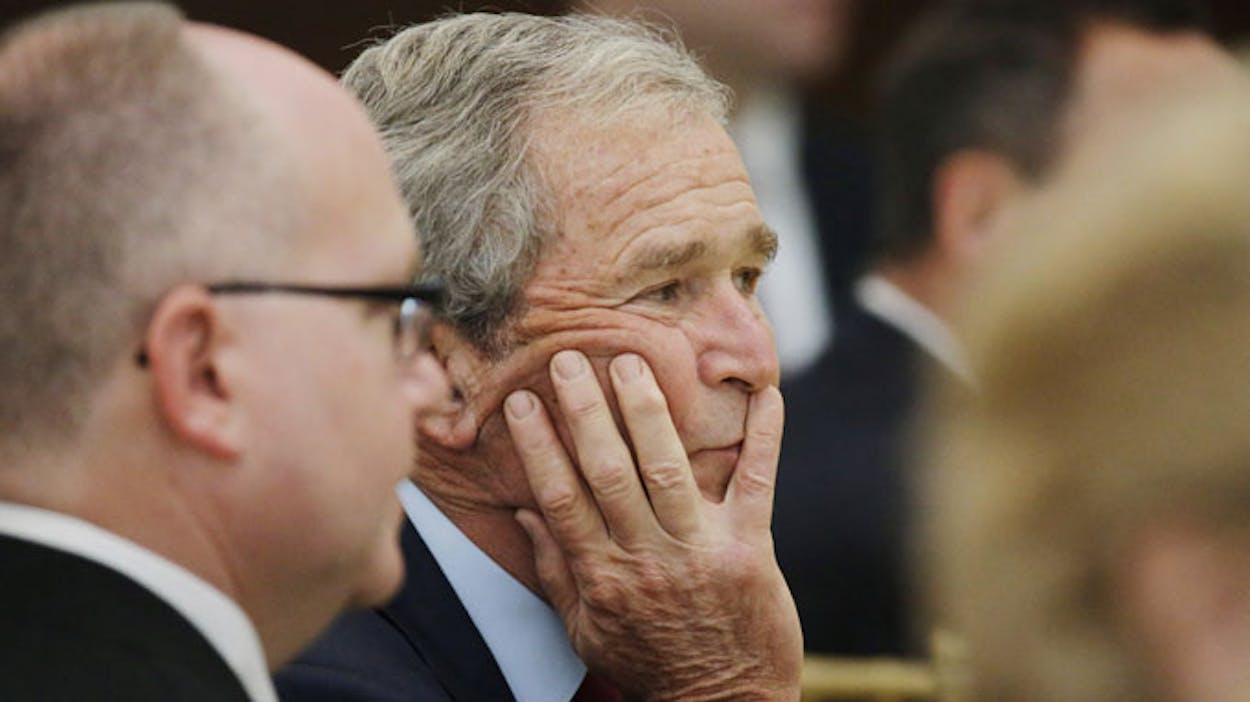
The George W. Bush Presidential Center will be dedicated today on the campus of Southern Methodist University, in Dallas. As is the custom with such events, the current president, along with every living former president, will be on hand, and I am pleased to be there to witness it. But inevitably it will be a bittersweet ceremony, because the memories of the Bush presidency are still fresh, and unfortunately there is not a lot to celebrate. They were difficult years, but also consequential ones. We need to look back no farther than the bombing at the Boston Marathon to recognize that we are still living in that era.
Bush was an extremely popular governor, and as someone who thought he was a very good one, I never expected that his presidency would take the turn that it did. He started his political career as “a uniter, not a divider,” and to my dismay, ended it as one of the most divisive presidents in American history. By the halfway point of his presidency, 2004, the person I knew as Governor Bush had morphed into President Bush, a politician whom I did not recognize. It was sad, but self-inflicted.
The Bush administration stretched the Constitution to the limit; it claimed broad powers for the executive branch in wartime; it sanctioned torture; and it gave us, in Dick Cheney, a vice president who came close to usurping the presidency. Bush’s judgment, which was very sharp when he was governor, failed him in his presidency. He quickly fell under the spell of the neocons, who believed in using America’s power to the fullest, never recognizing the limitations of military power. Not until Robert Gates replaced Donald Rumsfeld as secretary of defense did the military regain its footing. He waged an unnecessary war in Iraq, based on the false belief that Saddam Hussein had weapons of mass destruction. The war in Iraq had the predictable result of empowering Iran, America’s real threat in the region.
Today’s dedication will no doubt spark those old debates, and it will certainly bring forth those people who defend the Bush administration. And that is one reason why the Bush Presidential Center is so important. Presidential libraries are among America’s great treasures. They are the repositories of history. Robert Caro could not have embarked upon his multi-volume account of the Johnson presidency had there not been a library that preserved the record of that administration, warts and all. But it is not just the historical record that these libraries maintain. They are not musty tombs that accumulate paper; they are vibrant settings where people congregate to debate and learn from the lessons of the past.
Because presidential libraries represent the pinnacle of political achievement, they are magnets for those who seek to learn, not only from the past, but also from the present. These libraries attract the nation’s most august scholars and the programs that take place there address the nation’s most serious issues – past and present. Now the George W. Bush library will join the ranks of these great storehouses of knowledge, and its namesake will make the journey out of the present into history.
AP Photo | David J. Phillip








